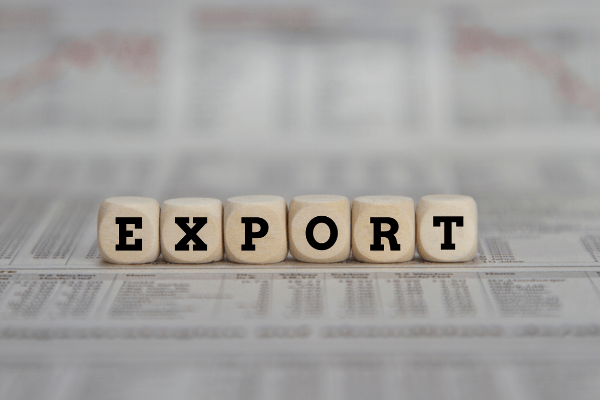BY:
SHARE:

In the world of trade compliance, the exporter is responsible for classifying their goods, technology, and software against the strategic controls to determine whether a licence is required. Military and Dual-Use items require a licence, regardless of the destination outside the UK.
The type of approval from the ECJU (Export Control Joint Unit) can vary, such as Open General Export Licences or the post-Brexit Dual Use OGEL equivalent, the Retained General Export Authorisation. The simple registration process required to use these licences shouldn't divert the exporter from understanding their responsibilities. Specific Terms and Conditions, the requirement for certain documentation or evidence, Open Licence Returns and an ECJU Audit are mandatory compliance responsibilities. Alternatively, an application could be required in the format of a SIEL (Standard Individual Export Licence) or an OIEL (Open Individual Export Licence), offering the exporter greater flexibility regarding goods and acceptable locations, but with a longer processing time for the ECJU to accept the application.
Due diligence is the cornerstone of export control compliance. It is the exporter's responsibility to understand if the goods, technology, or software are controlled and therefore licensable. Even goods and items that are not controlled may still require a licence from the ECJU SPIRE or LITE (Licensing for International Trade and Enterprise). Portal for various other reasons. This underscores the need for thorough due diligence in every export transaction. Ultimately, the Export Control Joint Unit will replace SPIRE with LITE. Currently, most Standard Individual Licence applications must be made on LITE, but there are exceptions when a SIEL application is required.
- End-Use Concerns: the supply of goods to produce Weapons of Mass Destruction, including Chemical, Biological, and Nuclear Weapons.
- Military End-Use controls: The UK Government has recently updated Military End-Use controls. In this example, it is insufficient for the exporter to claim that the goods are not controlled under the Military List. One way that Military End-Use controls can apply is when supplies are to an embargoed country, where the exporter is aware, or the ECJU informs them, that the items to be supplied are for incorporation into Military Goods. Being informed means a communication from the ECJU via the exporter's licensing portal that a licence is needed. The exporter's awareness will take us back to the importance of Due Diligence: understanding the goods, the end use, and the end user.
It is important to stress that the exporter, identified by their GB EORI (Economic Operator Registration and Identification), is responsible for obtaining the necessary licence. In some cases, the exporter may not own the goods they are sending out of the UK; the product could be exported, for example, after repair, checking or testing, but the entity named on the Customs Declaration as the consignor must obtain the licence. SPIRE recognises the importance of export and Customs compliance and requires that the licensee's EORI be documented in the "Organisation Details" section of the licence portal.
The exporter, often also the supplier or manufacturer of the goods, must be vigilant against parties attempting to circumvent export control regulations. This aspect of export control compliance (or potential non-compliance) leads us into the realm of Red Flags, warning signs that an export control violation could be imminent. This may require the exporter to conduct some investigative work. However, when the vehicle arrives to collect the consignment for export, the holder of the EORI must not doubt the destination of the goods, their intended use, and the identity of the user. While it is not impossible to request that the driver return to the loading point, if there is any doubt, it can be a challenging situation. Export documents can be scrutinised by HMRC (the National Clearance Hub), or Border Force can physically inspect goods, and there have been numerous instances of consignments being seized due to export control concerns when the exporter has declared ‘no licence.’ This underscores the potential risks of non-compliance and the need for constant vigilance.
What could be considered a Red Flag? Several potential areas could raise concern, and it's not uncommon to have more than one Red Flag to investigate. While there may be deadlines to meet, set by the seller, the business, or the company that will collect the consignment, it's crucial to err on the side of caution and conduct the necessary due diligence checks before loading the goods onto the vehicle. This proactive approach can help identify potential red flags.
What do we know about the customer? New business is excellent, but a company that we don't know with no trading history could be cause for concern. Financial checks are made when considering payment times for a new customer. Do those checks bring any information to light that may require further investigation? Does the company have a website? Does the contact have a company email address, or is it a generic address, such as a Hotmail domain name? In a world changed by COVID, we have switched to working remotely via Zoom and Teams, and mobile phones are now primarily used instead of a business landline. But does the customer enquiring have a mobile-only, or are there any clues in their email signature? In many instances, a business uses its email signature to promote its services or a future event, such as a trade show. If there is a simple "thanks & regards" and the individual's name, though it could be OK, it does give enough of a link to an overseas company. Many of us will send emails from our mobile phones, but could this also be something to investigate further? If there isn't a website stated in the email, what is it? A potential point to explore.
Even before those checks are made, is our customer the End-User? If they aren't the End-User, who is, and where are they based? A good place to start could be to request that a SIEL End User Undertaking be completed. This will clarify the relevant parties and serve as a strong foundation for considering the next steps.
Have Incoterms® Rules been discussed? EXW (ExWorks) is always an area of concern; many EXW shipments are FCA (Free Carrier) in all but name, which is safer, as it means the seller is responsible for export documentation, including any required licences. Would the exporter prefer to deliver to the customer under C or D Terms?
Does the delivery address mean the goods are destined for a freight forwarder or a transport company? If this is the case, it is a significant proliferation Red Flag and would be an instant concern, although it may not be immediately apparent. Is a delivery address supplied and then changed at short notice? Is there a vehicle in the area by chance? And does DAP switch back to EXW or FCA? This could be harder to manage and spot within the daily activities of a busy shipping department and warehouse. Deliveries to a Customs Free Zone are not allowed under the terms of an OGEL. This suggests unease about the level of Customs control in and out of the location, and is a proliferation concern.
Payment terms could be Cash in Advance, based on a lack of trading history or the buyer's choice. Is the latter option acceptable? In many instances, Cash in Advance (hopefully not money in a suitcase, left in reception) is seen as a huge benefit, giving the supplier minimal risk. OFSI, the Office of Financial Sanctions Implementation, administers financial sanctions as part of HM Treasury. If a trade is subject to economic sanctions, OFSI approval is required before it can proceed. This could be necessary in addition to ECJU approval. If the sale is payment in advance, who has made the payment?
Is your customer (or potential new customer) vague on a variety of information and the questions you ask as part of your due diligence? Do the goods to be supplied and the purchase country match your experience of previous buyers?
If we consider Military End Use controls, there could be related businesses, each with particular production activities, one of concern, the other manufacturing a product for the domestic market. Which factory are your goods destined for?
If challenged, the exporter must be able to show that they have carried out a level of Due Diligence, meaning they had no doubts about the supply of goods prior to the consignment leaving their premises. How far must we go (in our checks) is a popular question. The answer, in many instances, is "it depends," as there are many variables that may require further checks, and these need to be factored in by the exporter. The consideration of a licence and export control compliance must be made as early as possible.
If our business trades internationally, we (as a company) need to be aware of our compliance responsibilities. This will vary depending on your job role and the types of products that you export, but this world of trade compliance continues to change and evolve. We also need to discuss the possibility that goods are not licensable for export. If that’s the case, it is recommended that the Exporter include a positive statement on their invoice, such as “No Licence Required.” However, it’s essential to be aware that HMRC’s Customs Declaration Service (CDS) may require additional information. The best advice is to review the UK Integrated Online Tariff to check for any Export Controls that could apply to the Commodity Code, as detailed within the document. You will find “Select a Country,” and below that are four tabs: Import, Export, Origin, and Notes. Select the “Export” tab for any “All Countries” controls that apply. A Commodity Code can be controlled for various reasons at the export stage. Two relevant examples are Footnote EX001 “The export of these items may be controlled under the Export Control Order 2008 amended” and Footnote EX005 “The Export of these items may be controlled under Retained Council Regulation (EC) No. 428/2009, as retained in UK Law” The key word in both statements is “may” and the exporter has the responsibility to confirm if the goods require an Export Licence or not. Click on the “Conditions“, which is next to the “Footnotes” link.
Using EX001 as an example. Document Code 9Y07 is declared to CDS for “Goods for which an export licence is not required” The document code is declared in Data Element 2/3, and there is another link which provides “Guidance for completing CDS Data Element 2/3”. Within the guidance information, there is confirmation of the exporter’s responsibilities when Y907 is declared. “Use of this code constitutes a legal declaration that the consignment does not require an export licence. Sufficient evidence must be held in records to demonstrate eligibility for this exemption and must be produced on demand.”
It’s clear that, based on the Commodity Code declared, CDS is emphasising the importance of definitive export control classification. This requirement may involve input from technical, engineering, purchasing, or other departments. A business needs to ensure there is a competent authority responsible for classifying goods against the
UK Strategic List. This helps clarify that Export Control compliance will never work if one person is responsible; it must be a team effort, supported by senior management, to ensure ongoing compliance.
OneCall™ Email assistance as and when required; A one-call solution for all your import, export and customs enquiries. Export help. Import help. Customs help.
Stay informed about customs and international trade matters by subscribing to our OneCall™ service. This comprehensive offering includes a dedicated email helpline for support, timely practical updates direct to your inbox (Did You Know?), monthly UK Customs & Trade Briefings and access to an interactive members' area with an exclusive community for our subscribers.
International Trade Updates & Spotlight Newsletter
Subscribe to our free information emails covering international trade topics...
MORE INDUSTRY INSIGHTS...










